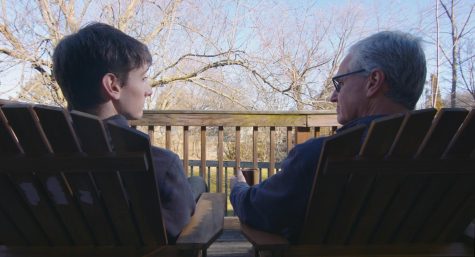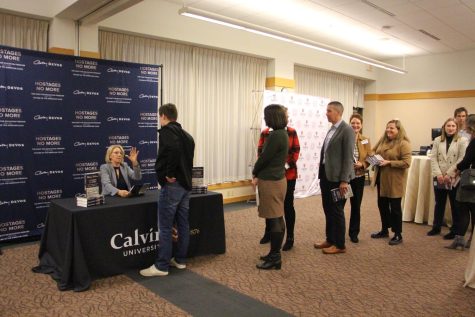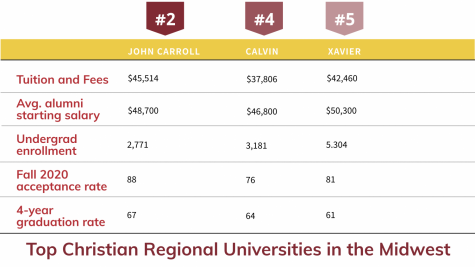How the humanities can pay your bills
“What in the world are you going to do with that?” is a question oft-asked of people majoring in the humanities.
Majors in the humanities are devalued. They require success stories to promote them as viable majors, as Vanderbilt University is doing by citing successful people with English majors such as Sting, Mitt Romney, Steven Spielberg and more. Books on how the humanities are “dying” are commonplace.
In his lecture on Sept. 22, in the Recital Hall, “How the Humanities Can Pay Your Bills,” Michael Berube, the Edwin Erle Sparks Professor of Literature and director of the Institute for the Arts and Humanities at Pennsylvania State University, cited all of these facts and then dismissed them summarily. Despite what was consistently said about the enrollment of English majors in the 90s, there was no actual decrease in enrollment, not since the 80s. According to Payscale.com, as well, English ranks 130 on a list of 319 majors for mid-career average earnings for majors.
By the middle of their career, an English major will earn more than people with degrees in human resources, psychology, biology and more. Finally, Berube noted that multiple articles have appeared in places like Forbes magazine, one of the top business magazines, where the authors have stated they prefer to hire people who majored in the humanities — “Why Entrepreneurs should hire English Majors” and “That ‘Useless’ Liberal Arts Degree Has Become Tech’s Hottest Ticket” are examples of such articles.
Despite all these statistics, however, Berube admitted that a reevaluation is becoming a reality. In the last decade, enrollment in the humanities has started to shift. At Pennsylvania State, Berube’s university, less than one percent of all of the students are English majors. Humanities across the United States currently make up roughly 15.6 percent of all degrees.
Yet, Berube pointed out that even with these statistics, it’s difficult to tell whether the humanities are really “dying.” These statistics don’t take double majors into account. Simply because someone isn’t majoring in English or the humanities doesn’t mean they aren’t taking classes, especially if they have some sort of humanities minor.
Also, consider the fact that governments tend to subsidize and fund the sciences far more than the humanities. As Berube put it, you could build a new building for his English department with the pocket change found in the couches of the new science building.
Berube highlighted a specific quote from his book “The Humanities, Higher Education, and Academic Freedom: Three Necessary Arguments,” published last year: “Despite skyrocketing tuition rates and the rise of the predatory student-loan industry; despite all the ritual hand wringing by disgruntled professors and the occasional op-ed hit man; despite decades’ worth of rhetoric on how either (a) fields like art history and literature are elite, niche-market affairs that will render students unemployable, or (b) students are abandoning the humanities because they are callow, market-driven careerists; despite all of that, undergraduate enrollments in the humanities have held relatively steady since 1980.”






